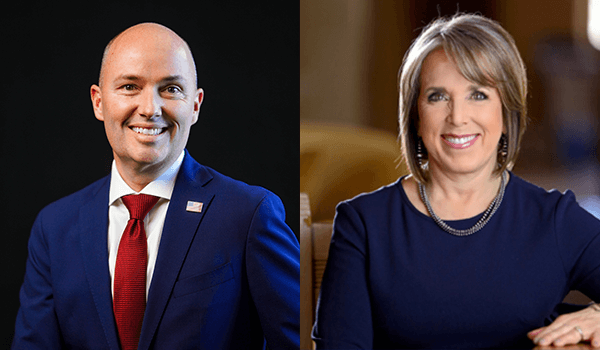As Northern Ireland grapples with legacy of the Troubles, Notre Dame experts influence policy to prioritize victims’ rights
Northern Ireland has long struggled to reckon with the trauma of the Troubles, a 30-year conflict that killed approximately 3,700 people — many of them civilians — through sectarian violence. Experts in the University of Notre Dame’s Keough School of Global Affairs recently influenced the design of a Northern Ireland commission to address the conflict’s legacy, sharing key lessons from Colombia on the importance of centering victims in truth and reconciliation.
The open consultation used expertise from the Peace Accords Matrix, part of the school’s Kroc Institute for International Peace Studies, as well as the Clingen Family Center for the Study of Modern Ireland, part of the school’s Keough-Naughton Institute for Irish Studies. Notre Dame was one of 11 organizations that provided input during the consultation and the only entity outside of Ireland or Northern Ireland to participate. The consultation draws on the school’s experience partnering with universities and civil society organizations that deal with the legacy of conflicts.

The work addressed a critical issue with the United Kingdom’s Legacy and Reconciliation Act of 2023, the most recent step in a series of proposals dealing with the Troubles. Since the conflict ended in 1998 with the Good Friday Agreement, no formal measures included larger issues of memory and reckoning with the past. The act created the Independent Commission for Reconciliation and Information Recovery, which was widely criticized for offering de facto amnesty for crimes that occurred during the conflict. Notre Dame experts emphasized the need to provide opportunities for victims and their families to participate in designing strategies to help the country move forward.
“We told the commission that if you want to address the concerns of the population, it is vital to put victims at the center of your work, and this will ensure decisions and policies are more sustainable,” said Josefina Echavarría Álvarez, professor of the practice and director of the Peace Accords Matrix.
Sharing lessons from Colombia
Experts drew on lessons from the historic 2016 Colombian peace accord when crafting their recommendations, Echavarría said. The agreement ended more than 50 years of armed conflict. The Peace Accords Matrix has had primary responsibility for technical verification and for monitoring the implementation of the accord through its Barometer Initiative.
Notre Dame experts recommended that the Northern Ireland commission:
- Engage with wider family members to understand individual preferences and circumstances (recognizing victims’ chosen family, not just blood relatives).
- Prioritize the needs of victims and their families and publish a clear guide on how both individuals and groups could participate in its processes.
- Hold briefing meetings with requesting individuals and families to share information before publishing final reports.
- Handle draft publications with more transparency and respect individual preferences and needs when finalizing reports.
In response to the consultation, the commission published an operational design framework, which outlines what to expect from the commission, the standards it has set for itself and how it can be held accountable by people who engage with it.

The consultation was part of ongoing work organized by the Clingen Center and the Peace Accords Matrix. This past summer, they convened a workshop with Corrymeela Community, Northern Ireland’s oldest peace and reconciliation organization. The gathering was part of Notre Dame’s Legacy Project, which shares lessons from the Colombian transitional justice program with peacebuilders in other contexts.
The workshop convened experienced transitional justice and peacebuilding practitioners, policymakers and scholars to discuss innovative approaches to the field, and was followed by a conference on addressing human disappearance.
Emma Murphy, a postdoctoral research associate with the Clingen Family Center for the Study of Modern Ireland and the Peace Accords Matrix, said the work represented an important step forward.
“While Northern Ireland is often upheld as a successful case in the field of transitional justice, ongoing issues related to the legacy of the conflict show the need to engage more deeply with the underlying dynamics that led to the outbreak of violence in the first place,” she said. “Colombia offers so many lessons on that front.”
Inclusive approach seeks broad input
Ultimately, Echavarría said, the consultation helped influence policy, nudging the commission to be more responsive to the needs of conflict victims by presenting evidence from Notre Dame’s work in Colombia.
“Restorative justice means that the process, as well as the outcomes, entail listening to all stakeholders involved in the truth-seeking process — and that includes witnesses, victims and offenders,” Echavarría said.
“We know from studying the conflict in Colombia that when policymakers include the people who would benefit from a measure in its design, you see greater transparency, participation and engagement, and the measures adopted are more effective. When people feel they have ownership in the process of seeking justice, that has a significant impact on the outcome.”
Originally published by at keough.nd.edu on Nov. 25.
Contact: Tracy DeStazio, associate director of media relations, 574-631-9958 or tdestazi@nd.edu
Latest ND NewsWire
- Notre Dame to host summit on AI, faith and human flourishing, introducing new DELTA frameworkThe Institute for Ethics and the Common Good and the Notre Dame Ethics Initiative will host the Notre Dame Summit on AI, Faith and Human Flourishing on the University’s campus from Monday, Sept. 22 through Thursday, Sept. 25. This event will draw together a dynamic, ecumenical group of educators, faith leaders, technologists, journalists, policymakers and young people who believe in the enduring relevance of Christian ethical thought in a world of powerful AI.
- Notre Dame Democracy Initiative hosts bipartisan conversation with Western state governorsTwo Western state governors known to work across the aisle on policy issues such as water, housing and energy will visit the University of Notre Dame for a fireside chat about how Western state pragmatism can serve as a model for the country to overcome polarization.
- In new research, Roy Scranton explores climate change and the limits of human progressIn his most recent book, “Impasse: Climate Change and the Limits of Progress,” Scranton, an associate professor of English, defines the impasse he sees as “not only political and institutional, but cognitive, existential and narrative” and asserts that the only path forward is through embracing what he terms ethical pessimism. “A lot of people confuse pessimism with nihilism, apathy and despair,” Scranton said. “But pessimism is actually about recognizing our limits, letting go of unrealistic goals, finding solidarity in the fact of human suffering and doing what you can now, not in some utopian future.
- Notre Dame MBA launches deferred admission programThe Notre Dame MBA Deferred Admission Program allows candidates with little or no work experience, including college seniors, to secure admission before reaching the recommended three years of work experience to enroll.
- ‘Prebunking’ false election claims may boost trust in electionsIn recent years, democracies worldwide have seen a growing erosion of trust in election outcomes and institutions, driven in part by fears of widespread fraud. New Notre Dame research finds that “prebunking” — providing accurate information before false claims spread — boosts trust in elections more effectively than traditional fact-checking.
- ND experts on the canonization of Carlo AcutisAs the Church awaits the ceremony in St. Peter’s Square, where Pope Leo XIV will formally declare Acutis a saint, University of Notre Dame experts Kathleen Sprows Cummings, Brett Robinson and Timothy O’Malley reflect on his life and his path to sainthood.













